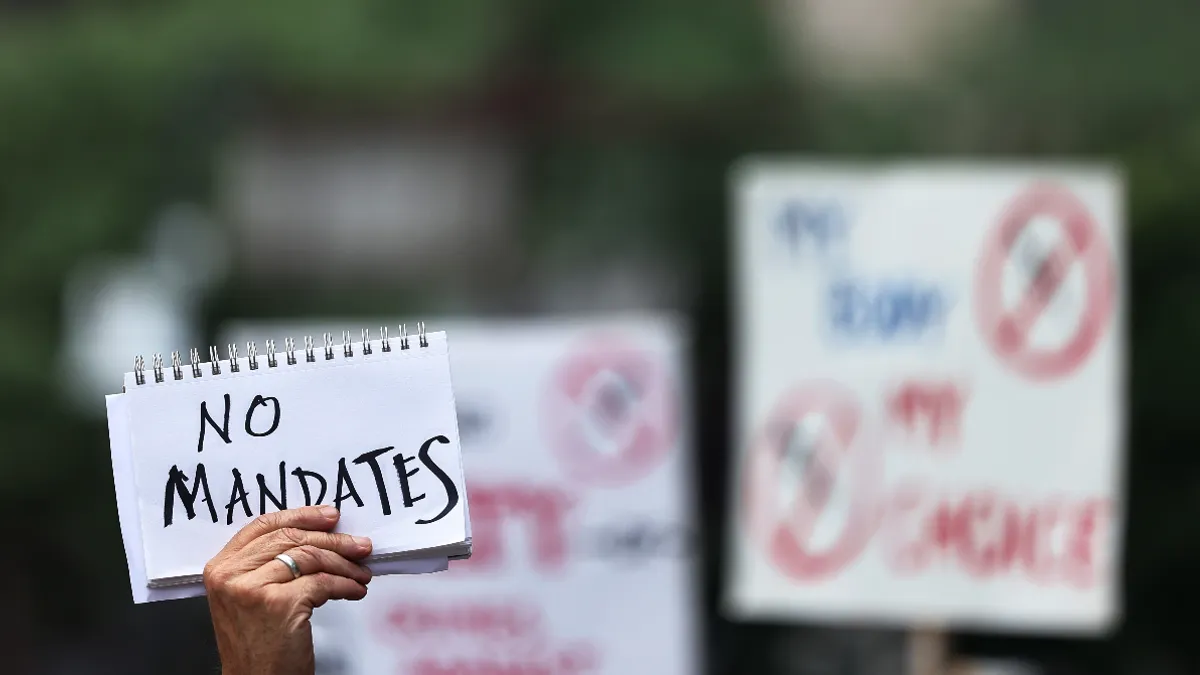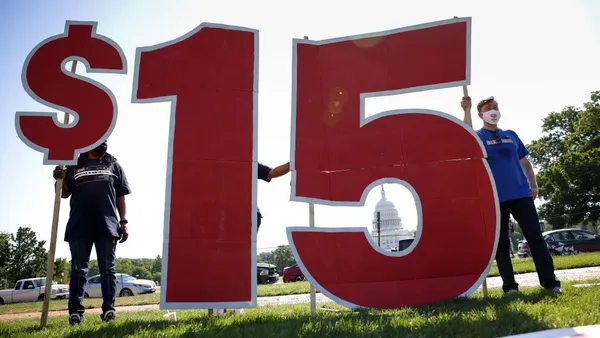Dive Brief:
- The Independent Restaurant Owners Association Rescue, which represents about 50 businesses in Brooklyn and Staten Island, New York, is suing New York City Mayor Bill de Blasio for requiring customers and employees to show proof of vaccination to dine indoors.
- The lawsuit, filed in a state court in Staten Island, seeks a block to the requirement, which was announced Aug. 3 and took effect this week. The city will begin enforcement of the mandate Sept. 13. The complaint states that because both vaccinated and unvaccinated individuals have been proven to contract the COVID-19 delta variant, the requirement is "arbitrary."
- The suit could have major implications as other cities adopt similar measures. San Francisco will require proof of full vaccination for patrons at indoor restaurants starting Friday, while New Orleans' indoor dining requirement of proof of at least one vaccine dose or negative coronavirus test took effect Monday.
Dive Insight:
New York City's vaccine mandate has ignited a domino effect not just in other cities, but across the industry. Some Philadelphia restaurants have followed suit, for example, as have restaurants in major markets like Chicago and Los Angeles.
Thus far, it appears the IROAR lawsuit is the first legal pushback against vaccine mandates for indoor dining, but several industry associations have strongly expressed objections to such policy. The Pennsylvania Restaurant and Lodging Association, for example, said such rules put an "unfair burden of verification on employees with no time to train or implement protocols."
Vaccine verification processes could be complex and potentially expose restaurant employees to harassment from diners unwilling to comply, as has been the case with mask mandates. This could cause more service workers to leave an already-weary labor pool for more stable job markets.
The lawsuit also claims New York City's vaccine mandate "infringes on people's First Amendment right to freely practice their religion," and provides no accommodations for those who cannot get the vaccination. IROAR also argues the mandate is unfair because it doesn't affect other settings that "involve groups of unassociated people interacting for a substantial period of time," such as churches, offices and health care facilities.
Despite these challenges, vaccine mandates could provide a silver lining for beleaguered restaurant operators. Andrew Rigie, executive director of the New York City Hospitality Alliance, said in a statement that the city's policy could help the industry avoid a return to dining room restrictions or shut downs. He added, however, that the mandate will "pose economic and operational challenges, particularly in communities with lower vaccination rates and hesitancy."
The University of Indiana could provide an interesting precedent with the IROAR litigation. The institution was sued for its mandating vaccinations for its students. However, its mandate was upheld by a federal judge and a request to block the mandate was subsequently denied by Supreme Court Justice Amy Coney Barrett earlier this month. The University of Indiana, at least in part, relies on public funding, which could provide some leverage for similar mandates for businesses implemented by the state.












